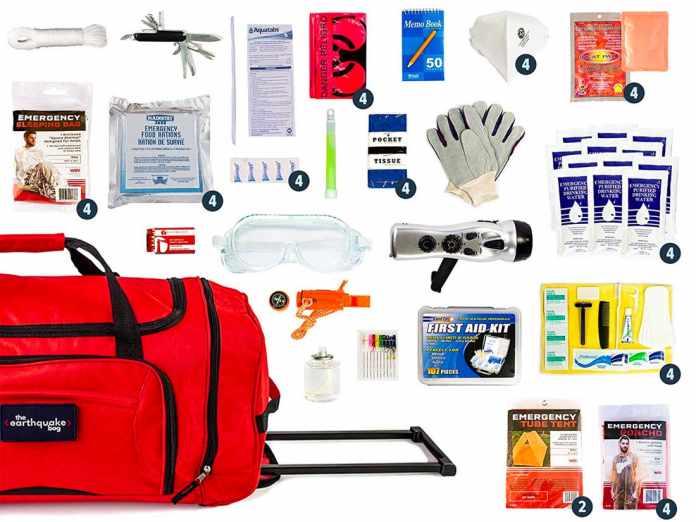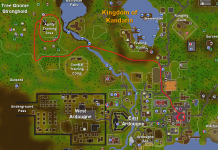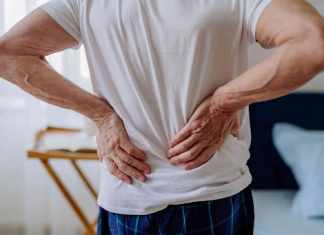If there’s one thing you can predict about weather, it is that it can be unpredictable. Between freak wind storms, heavy winter weather, tornados, floods, earthquakes or hurricanes – it seems that wherever you live in the country, there’s bound to be specific type storms your home might be susceptible to if hit hard enough. That’s why, as a homeowner, it is so important to take some basic precautions and steps to prepare in the event of a natural disaster. If you haven’t started your emergency kit, no worries. We’re going to break down the fifteen items every emergency kit should have and why they’re important.
First Things First
First, the most obvious things to have in your kit is food and water. Should weather or circumstance make it impossible to leave the home or grocery stores are unavailable, it’s vital that your family has enough food and water stock piled. The Red Cross suggests having a two-week supply of non-perishable food and water for each person in your household. While this may seem like a lot to keep around the house, it could be a real life-saver down the line.
Proper Lighting
Next, it’s time to think about how you are going to operate in a world with potentially no electricity. A good flashlight and a battery-powered radio are going to be your two greatest allies in this situation. Fenix flashlights make some of the very best tactical and everyday carry flashlights. Your flashlight might be your only source of light for days before electricity turns back on so choosing a bright, reliable flashlight is essential. A radio might feel a bit old school but it is potentially your best bet in staying connected to what is happening outside your home or to keep up to date on developments. For example, in the case of a tornado warning, your family might need to take shelter in a basement or cellar where cell service might not be as strong. In a more serious case, a storm could have potentially taken down cellular towers making phones useless and unreliable. Should there be an announcement about evacuation, you’ll want to stay on top of the situation. Also, make sure to keep a store of extra batteries on hand, just in case.
First Aid
While having a complete first aid kit in the home to handle inevitable bumps and bruises is always a good idea, in the instance of a natural disaster your first aid kit might be the difference between life and death. Depending on the severity of the situation, should someone in your home need medical care it might not be safe to leave the home or hospitals might be low on resources or over capacity. Having basic medical supplies like bandages, antibiotic ointment, sanitizer and cold compresses. Though, all these supplies might be a bit useless if you do not know how to use them. It might be a good idea to take a course on first-aid and/or make sure everyone in your household is CPR certified. If you or your family is not familiar with these life-saving methods, CRP and first-aid courses are offered at many community centers.
Personal Needs
Another thing to consider when making your emergency kit is your own personal needs – does anyone in your family take a medication, like insulin, that can not go without? Does someone have a serious allergy that would require medical intervention should they be exposed? It’s important to consider your member of your family’s medical history and pack an emergency supply of medication should there be a shortage or if you are unable to reach a hospital or pharmacy. It is also a good idea to have some general, over the counter medications on hand such as ibuprofen, benadryl and acetaminophen. These medicines can be helpful in curing acute pain and fevers. Most households already have a good amount of these medicines in their cabinets but it is important to keep a good eye on your supply levels rather than just expecting there to be some when you need it.
Finally, you should have all of your family’s important personal documents in one place and easily accessible. Documents such as driver’s license, passports, insurance information, birth certificates, social security cards, and medical information are vital. In the case your family has to flee your home in a hurry because of a forest fire or other disaster, having those documents can be a major help in getting back to normal once the dust has settled. Though this list feels extensive, doing a little planning and being prepared beforehand can help keep your family calm and safe in the event of an emergency. Talk with your family and make a plan for what to do and where to go in certain situations. We can not stop bad things from happening but we can be ready for them when they do come.















